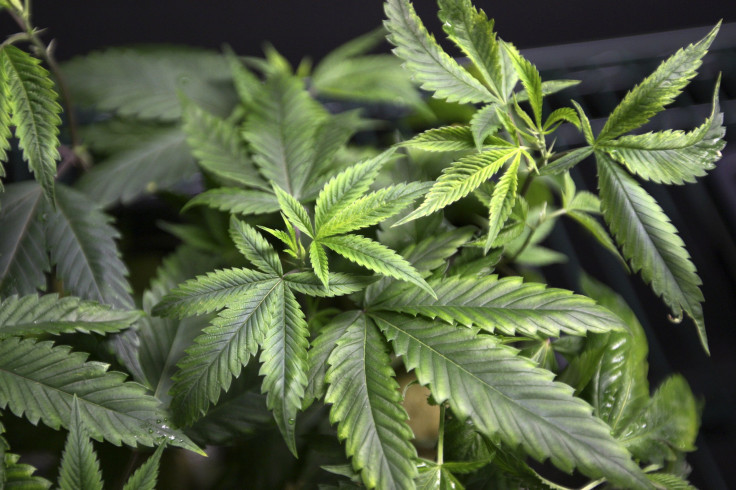2016 Presidential Election And Marijuana: How Ted Cruz, Jeb Bush, Marco Rubio Answer The Weed Question

The way U.S. presidential candidates answer the question of whether they smoked marijuana in their youth has evolved over the last generation from then-Arkansas Gov. Bill Clinton’s “I didn’t inhale” in 1992 to then-U.S. Sen. Barack Obama’s response in 2006: “When I was a kid, I inhaled frequently. That was the point.” With Americans now expressing more-positive attitudes toward legal marijuana and pot smoking than ever before, potential presidential candidates in 2016 are likely to answer the question more like Obama and less like Clinton.
The new pot reality also reflects a demographic shift. More candidates now were children of the 1960s and ’70s, when marijuana began to become more widely used among youth, said Michael Genovese, a professor of political science at Loyola Marymount University in Los Angeles. “We understand it’s not a big deal anymore and so admitting that you did it doesn’t have the negative impact it did 20 years ago, but being cagey about it raises questions,” he said.
Pot has already become somewhat of an issue this election cycle. This week, U.S. Sen. Ted Cruz of Texas, a potential 2016 Republican presidential candidate, revealed he lit up as a youth, according to the Daily Mail. “Teenagers are often known for their lack of judgment, and Sen. Cruz was no exception,” a Cruz representative told the British tabloid in a story published Tuesday. “When he was a teenager, he foolishly experimented with marijuana. It was a mistake, and he’s never tried it since.”
Another potential 2016 GOP presidential contender, U.S. Sen. Marco Rubio of Florida, has been less forthcoming. If he said he didn’t smoke pot, Rubio noted last year, the public wouldn’t believe him. And if he said he did smoke pot, the politician pointed out, some young people might think it’s OK to smoke weed because Rubio did.
Meanwhile, the Boston Globe recently published a story about former Florida Gov. Jeb Bush’s “tumultuous” teenage years at the elite Phillips Academy in Andover, Massachusetts. Bush acknowledged he drank alcohol and smoked marijuana, which he described as “pretty common” at the prestigious boarding school.
Admitting to pot use now is more about getting in front of the story, and denying it only opens up candidates to intense scrutiny of their past, Genovese said. “In today’s hypermedia, transparency becomes very important, and any little foible and anything that is deemed dishonest becomes exploited,” he said.
Three years before Clinton’s half-admission, 81 percent of Americans said marijuana should be illegal. In 2014, only 45 percent of Americans said they felt that way, according to the Pew Research Center. In 2013, a Gallup poll found even more support for legal weed, with 58 percent of Americans saying it should be legalized and 39 percent saying it should be kept illegal. The District of Columbia and 23 states have legalized medical marijuana, ProCon.org reported.
The change in attitudes signals that politicians don’t have to be coy anymore about their past marijuana use. But Republican contenders may have to be more careful than their Democratic peers because of their core constituencies, said Reed Welch, an associate professor of political science at West Texas A&M University in Canyon, Texas.
“The Republican primary is a different beast than the general election, of course, and the voters that vote in primaries are different,” Welch said. For instance, evangelicals make up a big chunk of caucus-goers in Iowa, which helped conservatives Mike Huckabee and Rick Santorum do well in the state in 2008 and 2012, respectively. South Carolina, a conservative southern state, is the third primary contest of the GOP cycle.
“When you have someone who lies or dances around it, people will find that that is not a desirable characteristic; they’re turned off by it,” said Mason Tvert, a representative of the Marijuana Policy Project, a marijuana-legalization advocacy group in Washington. “If a candidate said, ‘I never had a sip of alcohol and never would,’ that would play a role in people’s perception of who they are.’”
The yes-or-no answer isn’t a big deal to Tom Angell, founder of the marijuana-legalization group Marijuana Majority. “I care much less about whether someone used marijuana and was telling the truth about it than whether they will put my friends in jail for using marijuana,” he said.
Voters also consistently say they want a president to whom they can relate. Pollsters get to the heart of this by asking which candidate voters would rather have a beer with. Not having smoked marijuana may raise red flags about relatability.
“If I found someone who didn’t try [marijuana], I’d wonder, ‘What’s wrong with you? Are you really uptight?’” Genovese said. “I would be suspicious of someone who weren’t human.”
© Copyright IBTimes 2025. All rights reserved.






















